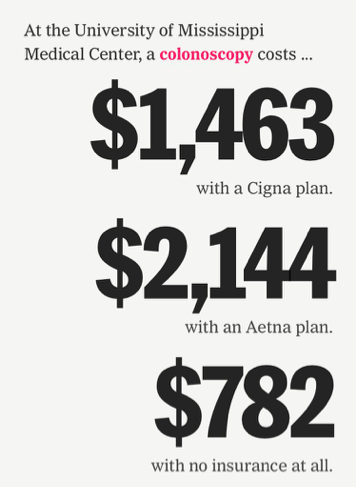New Frontier Policy Brief: Expanding Access to Telehealth Across State Lines
We don’t have to move mountains to start mending the damage done by onerous regulations. In this case, all it takes is one word.
“If you make 10,000 regulations you destroy all respect for the law.”- Winston Churchill
Since the COVID-19 pandemic began, Montana has taken dramatic steps to aid the public health response by reducing regulations. However, without further action from policymakers after emergency orders expire, Montanans could lose access to their healthcare as red tape and paperwork once again creep back into the picture.
In the case of Montanans accessing healthcare virtually, just one word change in an obscure passage of regulation could make all the difference. We dive into this in our latest Policy Brief.
While often implemented with safety in mind, healthcare groups have long noted that state licensing regulations are complex, expensive and one of the biggest barriers to widespread access to telehealth.
As a comparison, Montana patients are free to drive hours to another state like California to receive care from a specialist. But if the patient wants to receive care virtually from their home instead, the out-of-state doctor must first navigate substantial paperwork and fees to become licensed to practice in the Montana.
During COVID, Montana allowed a temporary streamlined process for medical professionals to remotely practice across state lines as long as they had a license in good standing in another state. However, with emergency orders expiring, traditional licensure is being reinstated.
We ask: If Montanans are free to drive to another state to receive care from a medical provider of their choice, why are they not free to do the same virtually?
Thankfully, policymakers have an opportunity for a simple administrative remedy: treat telehealth from out-of-state physicians the same as patients physically traveling across state lines. Astonishingly, we detail in our policy brief how this could be implemented with one word change in an obscure regulation issued by the Board of Medical Examiners.
We don’t have to move mountains to start mending the damage done by onerous regulations. In this case, all it takes is one word.
For Liberty,
Kendall Cotton
…
The Latest
Transparent Prices
The New York Times dives into healthcare pricing in a recent report, showing just how drastically a procedure may cost depending on a patient’s insurance plan. As the authors note, insured patients often get prices that are higher than they would if they pretended to have no coverage at all and paid with cash:

Our Take:
America’s healthcare system is truly broken. What good is traditional health insurance under Obamacare if paying for procedures will bankrupt most Americans before they hit their deductible?
That’s why it’s so important that patients are allowed to pursue options outside of the traditional insurance market. Thankfully, Montana passed a Frontier Institute proposal this Spring to allow for Direct Patient Care and other cash-based healthcare options.
As a result, patients in Montana will have more access to care in which they can directly negotiate prices with their health providers and get a better deal.
Housing boom
The Billings Gazette reports that Billings issued 325 construction building permits in the first half of 2021, more than in any other year of the last decade except for 2013.
The article notes that part of the reason for the housing boom is a recent effort to relax regulations, permitting a housing structure to occupy 60% or 40% of its lot depending on the zone, up from only 30% lot coverage beforehand.
Our Take: It’s no wonder that Billings is the #1 housing market in America. Experts from all across the political spectrum point to local zoning and building regulations as one of the biggest things driving up the cost of housing. People are voting with their feet and choosing safety, affordability and freedom that cities with less burdensome regulation can provide.
Frontier Mindset
The American Rescue Plan Act has allocated a total of $86.4 million to Montana cities, but the town of Ismay, MT, has denied the federal money. According to the Montana Free Press, Mayor Gene Nemitz said simply:
“Really we’re doing all right. We don’t need a lot,” he said. “So there’s no sense in taking money we don’t need.”
Our Take: Doesn’t this just make you proud to see Montana officials demonstrating fiscal responsibility and self reliance? If only all governments were as responsible with our tax dollars as this small town in Montana.
